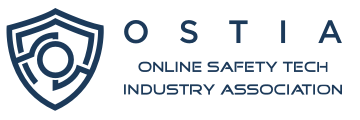On Friday 29 November 2019, Cyan Forensics and PUBLIC invited a range of innovators and other stakeholders from the online safety community to meet in Westminster. The group gathered to discuss the challenges and opportunities in front of them.
Baroness Shields (previously UK Minister for Internet Safety and Security, and now sitting in the House of Lords) chaired the session, which included representatives of a number of innovative companies, as well as government and charitable organisations working in this area, including IWF, Securium, Yoti, Censorpic, Crisp Thinking, Safe to Net and NSPCC.
A positive and productive day, a number of key themes emerged from the discussion, as well as an outline of a joint action plan.
The first was a voice of hope. All too often the debate on online safety in the public domain has two poles. There are those who focus on the failings of technology companies and who want them to improve their performance, notably including governments and charities. Whereas, technology companies frequently point to the cost and complexity of implementing online safety, and the conflict with other requirements, such as privacy and freedom of speech, and the lack of clear legal frameworks. In addition to these to viewpoints, there are innovative companies and organisations like the ones that came together in Westminster, that share a desire to have a collective voice highlighting not what is complex or difficult, but the exciting solutions already emerging that have a really positive impact on online safety where they are applied.
Collective influence also emerged as a theme. Of course each of the innovative organisations and individuals present has their own distinct ideas about how policy and best practice can be shaped, but there are some areas where there are common interests. It is also important to remember that governments and other regulators, by the very nature of who they are and what they represent, find it much easier to respond appropriately to collectively articulated positions, with broad backing from an industry, than to individual commercial interests.
The final theme was how advantageous and sensitive it would be to adopt more efficient networks. Many of the innovative companies we gathered together are duplicating work, trying to find the right people, the right investors and the right policy makers. Few of the companies present compete with each other – as each is solving a different part of the problem in a different way – so this suggests there may be scope for collaboration that would improve efficiency in building networks nationally and internationally.

To end our meeting, we collectively concluded that there is a need for a body that represents those creating technology for online safety, to facilitate and promote opportunities for collective voice, influence and networks. The online safety sector is still relatively small, but is growing rapidly, and could perhaps learn from early work done in the Fintech and Cyber clusters in the UK. A number of attendees volunteered to start putting together a proposal for a representative body to share with the wider group. So watch this space as for news of things beginning to take further shape.
Cyan Forensics is a public safety company working with law enforcement to rapidly find harmful content from paedophiles and terrorists on computers, now moving into the online safety market as well.
“We are incredibly excited to be working with Cyan Forensics and help them shape the future of public safety, both online and offline. It’s impressive what the team has achieved over the last six months and we are looking forward to seeing what they will be offering to social media companies and law enforcement, to make our communities safer places”. Daniel Korski, CEO and Co-Founder of PUBLIC
